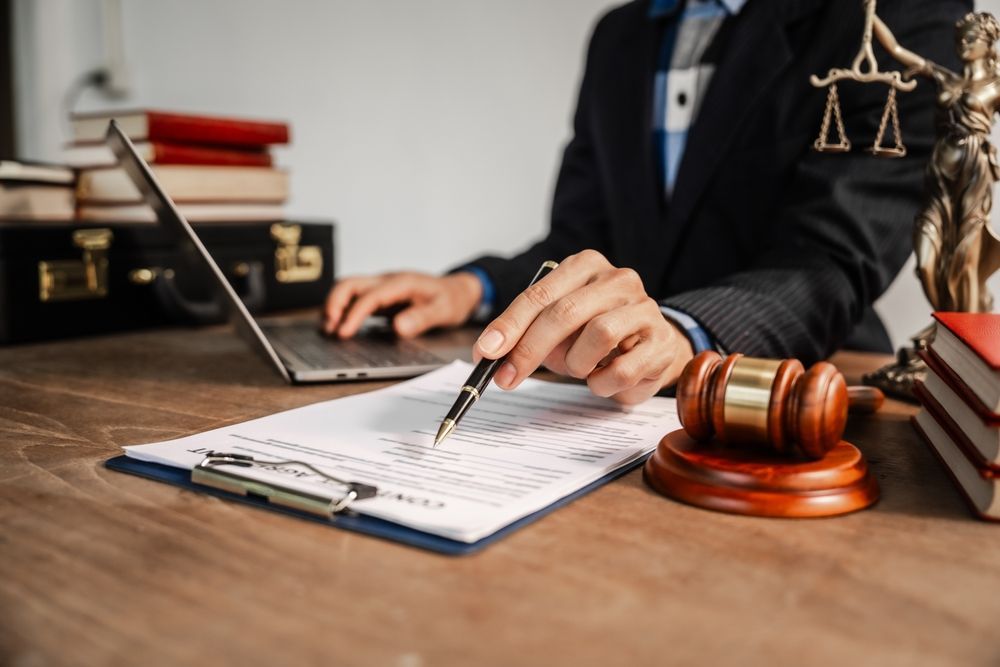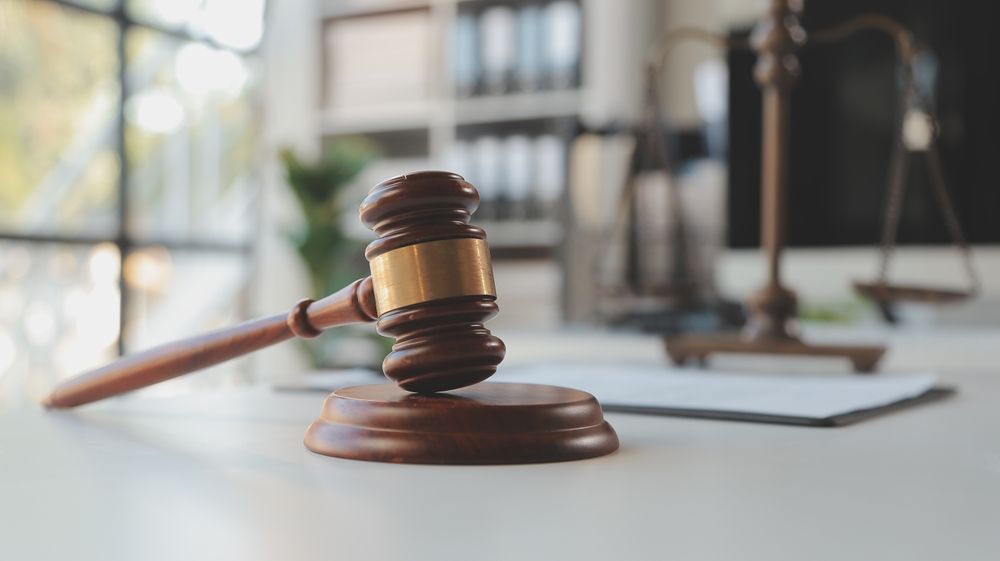By Jessica Nix
•
February 10, 2026
In days past, our grandparents found the services they needed in the Yellow Pages. Today, we have access to hundreds of businesses and services on our phones, along with information on how previous clients felt about their experiences with them. These honest, "real talk" reviews can help more than you know, especially when looking for critical services like legal help. Client feedback aggregates the lived experiences of people who hired car accident lawyers and reveals patterns that matter when you must choose representation after an injury. This article explains what “client feedback” includes: reviews, testimonials, case outcomes, and complaint themes, and why those signals reduce hiring risk and set realistic expectations for injured Atlanta drivers. Readers will learn how to interpret reviews, spot common complaints, evaluate priorities that matter most to clients, and apply a practical checklist for choosing the right attorney in Atlanta. The guide also analyzes anonymized settlement outcomes (types of compensation recovered) and explains how legal strategy and local knowledge influence results. Finally, the piece maps client priorities to actionable firm practices. It describes how some firms, including The Law Office of Rickard, Drew & Nix (RDN Legal), align with client needs while preserving an emphasis on impartial analysis. Why Are Atlanta Car Accident Lawyer Reviews Crucial for Clients? Reviews are crucial because they synthesize evidence about a lawyer’s responsiveness, negotiation skills, and track record in real-world situations, helping injured clients predict likely experiences and outcomes. Reviews work by revealing repeated behavioral patterns like communication cadence, willingness to litigate, and settlement follow-through that matter more than marketing claims alone. For clients in Atlanta, where Georgia's modified comparative negligence rules affect recovery, reviews that reference case types and outcomes are especially useful for assessing the likely representation. Reading multiple platforms and looking for specifics (case type, timeline, outcomes) helps separate genuine signals from noise and short testimonials. Interpreting reviews critically reduces hiring uncertainty and prepares clients to ask targeted questions in the free consultation. Client-facing reviews often highlight concrete performance dimensions that closely align with legal value, including responsiveness, negotiation effectiveness, and outcome focus. These dimensions guide shortlisting before a consultation and set expectations for communication and settlement timelines. RDN Legal notes commitments that align with what many reviews highlight: free consultations, contingency fee arrangements (with no upfront fees), and a team with insurance company experience that informs effective negotiation strategies. How Do Client Testimonials Reflect Lawyer Expertise and Trustworthiness? Client testimonials demonstrate expertise and trustworthiness when they include verifiable specifics, such as case facts, timelines, and outcomes, rather than generic praise. A testimonial that mentions successful negotiation of medical bills or persistence with an insurer signals negotiation skill and case management; references to trial readiness or courtroom advocacy indicate trial competence and willingness to litigate. Testimonials that name attorneys, describe communication cadence, and include dates provide stronger trust signals because they are easier to corroborate. When testimonials consistently reference the same positive traits, they create a pattern that prospective clients can rely on to evaluate fit and likely experience. Consistent details across reviews reduce information asymmetry and enable prospective clients to probe the same topics during their consultation, increasing the chances of a good attorney-client fit. What Key Qualities Do Clients Look for in Atlanta Car Accident Lawyers? Clients typically seek a combination of clear communication, negotiation skills, transparent fees, and local legal knowledge when hiring a car accident lawyer in Atlanta. Communication involves regular updates, clear explanations of legal options, and a predictable point of contact. Negotiation skills entail accurately valuing claims and pressing insurers for fair offers. Transparent fees mean clear contingency arrangements and explanations of possible deductions. Local knowledge, familiarity with Atlanta-area courts, medical providers, and accident patterns, helps attorneys anticipate procedural timelines and valuation norms. Prospective clients should prioritize attorneys whose reviews repeatedly highlight these qualities and who provide concrete examples during interviews. These qualities form a shortlisting rubric that informs which attorneys to contact for a free consultation and which items to confirm in an engagement agreement. How Do Reviews Influence Confidence in Legal Representation? Reviews influence confidence by lowering perceived risk and providing concrete expectations about the process and likely outcomes. When prospective clients see reviews that describe consistent timelines, thorough communication, and fair settlements, they are more likely to feel confident proceeding with that firm. Reviews also help set expectations about obstacles, such as disputes with insurers or delays, so clients can mentally prepare and ask constructive questions. The psychological effect of repeated, detailed praise is measurable: prospective clients often narrow their list to firms with multiple substantive reviews before scheduling consultations. In practice, substantive reviews convert interest into consultations faster than generic star ratings alone. Understanding how reviews shape decision-making empowers clients to prioritize depth and relevance in the reviews they trust rather than relying on overall rating averages. What Are the Most Common Complaints About Car Accident Lawyers in Georgia? Clients commonly report a handful of repeat complaints that reduce satisfaction even when outcomes are reasonable; understanding these helps prospective clients avoid pitfalls and hold firms accountable. The top complaints include poor communication, surprises about fees or cost deductions, perceived slow progress, and a lack of transparency about settlement strategy. Each complaint arises from a gap between client expectations and firm processes, which can often be resolved with clear engagement documents and agreed-upon update scheduling. Identifying these complaints in reviews lets prospective clients ask targeted questions and request specific commitments during the free consultation. Below is a structured mapping of common complaints to how a responsive firm might address them. Introductory list of common complaints and quick fixes: Poor communication : Request a single point of contact and a written update schedule. Fee surprises : Ask for a written contingency agreement that explains deductions. Slow progress : Request milestone-based timelines and escalation steps. Clients who read reviews noting these remedies are better positioned to choose an attorney who will meet expectations and reduce post-hire regret. How Does Poor Communication Affect Client Satisfaction? Poor communication amplifies anxiety, creates misunderstandings about strategy, and can lead to missed deadlines or inadequate evidence gathering. When clients do not receive timely updates, they may feel neglected, even if the firm is working behind the scenes, and this perception often appears in reviews as a major driver of dissatisfaction. Good communication mitigates these risks by setting clear expectations at intake, explaining the frequency of updates, the channels to be used, and who to contact for urgent questions. Clients should look for reviews that describe predictable communication patterns and clear handoffs between staff, as these are reliable indicators of a consistent client experience. Clear early agreements on communication reduce the chance that a client will later file a complaint or lose confidence during the case lifecycle. What Legal Fee Concerns Do Clients Often Report? Clients often report confusion about contingency fee percentages, deductions for case costs, and how medical liens or health insurance subrogation affect net recovery. Standard contingency ranges in practice tend to fall in the low-to-mid 30% area, but the precise percentage and which costs are deducted before attorney fees should be spelled out in writing. Red flags include vague fee language, refusal to provide a sample fee agreement, or unclear explanations about liens. Prospective clients should request a written fee agreement at the initial meeting and ask for examples of how net recovery will be calculated in typical scenarios. Asking for written examples and clarification about deductions helps clients avoid unpleasant surprises and guarantees reviews referencing fee disputes are taken seriously. How Can Clients Manage Expectations About Case Progress and Updates? Managing expectations begins with a clear timeline discussion at the free consultation and continues through milestone-based updates. Clients should expect an initial evidence-gathering phase (medical records, police reports), an insurance negotiation phase, and possible pre-litigation or litigation steps; each phase has typical time ranges and common delay points. Establishing preferred communication channels and regular check-ins reduces anxiety and documents progress. If a client senses stagnation, they should request a status meeting, ask for a written next-steps plan, and, if necessary, request escalation procedures that the firm can follow. A proactive update schedule and milestone commitments in writing reduce misunderstandings and improve satisfaction even when cases take longer than expected. What Do Clients Value Most in an Atlanta Car Accident Lawyer? RDN Legal’s Approach Explained Clients value predictable communication, strong negotiation and trial readiness, transparent pricing, and local legal knowledge that affects outcomes in Atlanta courts. These priorities align with practical indicators such as review mentions of medical bill recovery, quick insurer engagement, and clarity about fees. Below is a compact mapping that compares client expectations with practices firms can use to show alignment. This section also presents key firm value statements, allowing readers to see how firm offerings align with client priorities. Clients often emphasize outcomes, but they also weigh how firms achieve results, through negotiation skills, insurance insight, and local knowledge that shortens timelines and strengthens claims. How Does Aggressive Representation Benefit Car Accident Clients? Aggressive representation benefits clients by increasing settlement leverage and signaling to insurers that low-ball offers will be met with courtroom readiness. Aggressive tactics include thorough factual development, early demand packages that comprehensively document damages, and a readiness to litigate when insurers undervalue claims. When a firm prepares for trial from the outset, it often induces better pre-suit offers because the insurer must reckon with the risk of a larger judgment. That said, experienced advocates balance aggression with strategic compromise when it maximizes the client's net recovery. Prospective clients should probe how a firm determines when to litigate versus negotiate and seek examples of cases where trial readiness produced better settlements. Why Is Insurance Company Experience Important for Negotiations? Prior insurance company experience gives attorneys insight into adjuster playbooks, reserving practices, and typical undervaluation tactics that insurers use. Lawyers who have worked for insurers can anticipate common defenses, recognize low settlement strategies early, and structure demands that preempt undervaluation. This practical knowledge reduces the negotiation cycle time and often improves recovery by addressing insurer objections before they solidify. For clients, insurance experience tends to show up in reviews as faster insurer engagement and more precise explanations of settlement posture. Asking attorneys whether they or their team members have insurance-side experience helps clients assess whether the firm can effectively combat adjuster tactics. How Does the Contingency Fee Model Reduce Financial Risk? A contingency fee model reduces upfront financial barriers by allowing clients to pursue claims without paying attorney fees unless there is a recovery. This alignment means that attorneys share incentives with clients to maximize net recovery while effectively managing case costs. Clients should confirm contingency percentages and whether case costs (experts, filing fees) are deducted before or after the fee calculation. Clarifying these details in writing helps convert the contingency advantage into predictable net outcomes for the injured client. What Role Does Local Atlanta Expertise Play in Case Success? Local Atlanta expertise affects case success by streamlining evidence collection, leveraging clinician and expert networks, and understanding how judges in the Greater Atlanta Metro Area typically evaluate damages. Familiarity with local accident hotspots, common injury patterns, and regional medical providers helps attorneys build persuasive narratives and obtain timely medical documentation. Local knowledge also shortens timeline friction related to subpoenas, witness interviews, and court scheduling, which can increase client satisfaction. Prospective clients should value attorneys who demonstrate local procedural knowledge and connections that materially affect case preparation. Confirming local experience during the consultation clarifies how an attorney’s background will translate into concrete case advantages. How to Evaluate and Choose the Right Car Accident Lawyer in Atlanta? Choosing the right attorney requires a structured evaluation process that compares experience, communication, fee transparency, and local expertise against your case needs. A step-by-step checklist helps convert review signals into interview questions and red flags, making consultations more productive. Below is a concise evaluation table and a numbered checklist that you can use at intake to cover critical topics and identify appropriate red flags. Prepare a case summary and bring your medical records to the consultation so that questions can be focused and efficient. Ask precise questions about timelines, communication, contingency terms, and comparable case outcomes. Request a written engagement sample and clarify who will handle day-to-day communication on your case. These steps convert review-based shortlists into informed hiring decisions, reducing the likelihood of later dissatisfaction. What Questions Should You Ask During a Free Consultation? During a free consultation, prioritize questions that reveal experience, process, and expected involvement: ask about similar cases, negotiation strategy, expected timeline, communication cadence, and fee details. Phrase questions to elicit specifics, for example, “In a case like mine, what were the typical settlement ranges and timelines?”, and request anonymized examples where permitted. Confirm who will handle your file day to day and whether the attorney or staff will be your primary contact. End by asking for references to third-party sources, such as court records, if you want to verify trial involvement. How to Assess a Lawyer’s Experience and Trial Record? Assess experience by requesting anonymized case summaries, checking publicly available court records for litigation history, and confirming bar membership and any disciplinary history. Ask attorneys for metrics that matter, including frequency of settlements vs. trials, typical settlement drivers, and how they quantify pain and suffering, or ask for examples that illustrate their approach without violating confidentiality. Interpreting results responsibly means considering case specifics; a large recovery for one fact pattern may not translate to another. If a firm refuses to discuss prior results or provides marketing claims exclusively, treat that as a red flag. Verifying experience through multiple sources and focused questioning during consultations reduces reliance on promotional language, supporting confident hiring decisions. Why Is Local Legal Knowledge Essential for Atlanta Car Accident Cases? Local legal knowledge matters because Georgia-specific rules, like the modified comparative negligence rule and the two-year statute of limitations, directly affect liability and timing for claims. Familiarity with local medical providers and expert witnesses speeds evidence collection, while knowledge of local court procedures reduces procedural delays. Attorneys who routinely practice in Fulton, DeKalb, or other Atlanta-area courts know local judges’ preferences and scheduling realities, which can influence negotiation posture. Confirming that a potential lawyer understands Georgia laws and the local court environment is a practical step to reduce unexpected legal obstacles. A lawyer’s local network and procedural fluency often account for measurable differences in case pacing and settlement outcomes. What Do Real Client Success Stories Reveal About Car Accident Settlements in Atlanta? Real client success stories typically reveal consistent patterns about how compensation categories are recovered and the role attorneys play in maximizing net recovery. Success stories commonly reference reimbursement of medical bills, compensation for lost wages, and awards for pain and suffering, each requiring specific documentation and narrative construction. Attorney involvement commonly affects recovery by coordinating medical documentation, negotiating with insurers, and, if necessary, preparing persuasive litigation narratives to support the case. Common compensation categories and why they matter: Medical bills : Demonstrates economic loss and establishes treatment necessity. Lost wages : Requires payroll records and employer statements for verification. Pain and suffering : Relies on medical narrative, daily-living impact, and sometimes expert testimony. These categories form the core of most settlement negotiations and determine how attorneys allocate resources during the case preparation process. How Have Clients Benefited from Compensation for Medical Bills and Lost Wages? Clients benefit when attorneys meticulously document medical treatment and connect it to the accident causation, enabling reimbursement of immediate bills and providing a basis for future care claims. Lost wages are calculated using pay stubs, employer statements, and, in some cases, input from a vocational expert to account for reduced earning capacity. Attorneys often coordinate with medical providers to obtain precise billing records and secure records that show causation and prognosis. When these economic losses are documented clearly, insurers are more likely to make settlement offers that reflect the full scope of financial harm. A thorough evidentiary package transforms anecdotal success stories into repeatable processes that can be replicated for similar clients. What Impact Does Attorney Advocacy Have on Pain and Suffering Claims? Attorney advocacy increases the valuation of non-economic damages by shaping a coherent narrative that links the client’s injury to daily-life impacts and future limitations. Techniques include compiling detailed medical records, collecting testimony from family members or coworkers, and utilizing expert reports to provide a comprehensive explanation of the long-term prognosis. Attorneys also frame pain and suffering using documented treatment intensity, recovery setbacks, and objective evidence such as imaging. These actions collectively raise the plausibility and perceived severity of non-economic claims in negotiations and, when needed, before juries. Effective narrative-building and expert coordination are the primary levers attorneys use to secure fair valuations for pain and suffering. How Do Video Testimonials Enhance Client Trust? Video testimonials enhance trust by putting a human voice and face to written reviews, increasing perceived authenticity and engagement for prospective clients. Short, focused clips that mention case type, timeline, and the attorney’s role tend to perform best for both trust-building and discoverability. For readers relying on reviews, video content that aligns with written testimonials provides multi-modal evidence of consistent client experience. Including video evidence alongside written reviews accelerates trust formation and often increases conversions from interest to consultation. What Are the Most Frequently Asked Questions About Client Feedback and Car Accident Lawyers in Atlanta? This section addresses common, practical questions that readers often ask when evaluating reviews and deciding whether to hire a car accident lawyer in Atlanta. Each answer is concise and designed for use during the shortlisting and consultation process. These FAQ-style responses focus on why reviews matter, how contingency fees work, what to look for in reviews, and steps to resolve dissatisfaction with a lawyer. Why do client reviews matter? Reviews reveal repeated performance patterns like communication, negotiation skills, and outcomes that reduce hiring uncertainty and help set realistic expectations. How do contingency fees affect decisions? Contingency fees eliminate upfront costs and align incentives, but clients should confirm the exact percentage and which expenses are deducted before calculating the net recovery. What to look for in reviews? Look for case-specific details, timelines, and references to medical bill recovery, as well as recurring themes across platforms, rather than relying solely on single-star metrics. Why Are Client Reviews Essential When Choosing an Atlanta Car Accident Lawyer? Client reviews are essential because they summarize multiple data points like communication, outcome, and process into concise narratives that prospective clients can quickly evaluate. Reviews that include case type and timeline provide more predictive value than generic praise because they map to situations similar to the reader’s. Cross-referencing reviews across platforms and checking for consistency reduces the risk of relying on isolated positive or negative anecdotes. Use reviews as a basis for focused consultation questions that verify the claims in person. How Do Contingency Fees Affect Client Decisions and Satisfaction? Contingency fees increase access to representation by removing upfront payment barriers and aligning attorney incentives with client recovery. Satisfaction depends on clear expectations about the fee percentage, how case costs are handled, and how net recovery is calculated. Clients who receive transparent written agreements and clear explanations of potential deductions report higher satisfaction and fewer disputes. Confirming these elements in writing at intake prevents later surprises and reduces the risk of fee-related complaints appearing in reviews. Explicit written fee terms are the primary safeguard against later dissatisfaction related to payments. What Should I Look for in Reviews When Choosing a Car Accident Lawyer? When reading reviews, look for specific details, such as case type, timeline from injury to settlement, documented compensation types (including medical bills, lost wages, and pain and suffering), and consistent mentions of communication quality. Verify whether multiple reviewers describe similar behaviors or outcomes, and prioritize recent reviews that reflect current practice. Avoid over-weighting a single 5-star rating without substantive details. Cross-check claims against court records or ask for anonymized case examples during the consultation. How Can I Resolve Issues If I’m Unhappy with My Car Accident Lawyer? If you are unhappy with the representation, document your specific concerns, request a meeting to discuss remedies, and ask for a clarified written plan to address the issues. If the firm cannot resolve concerns internally, consider seeking a second opinion from another attorney or requesting mediation as an intermediate step. Filing a bar complaint is a last resort after attempting internal resolution and seeking independent legal advice about the merits of a formal complaint. Early documentation of concerns and timely escalation often lead to practical remedies without the need for formal proceedings. How Does RDN Legal Address Common Client Concerns Satisfactorily? This section explains how firms can address complaint areas and how RDN Legal’s stated commitments align with those remedies, focusing on fee transparency and insurance negotiation strengths that are explicitly provided. The purpose is to show how client concerns map to firm practices while keeping focus on topic-first guidance and minimizing promotional language. Where specific firm practices are not explicitly stated in the allowed information, the section frames recommended best practices that clients should request. Below is a practical list of steps clients can expect to see and confirm during the intake process to address the standard drivers of dissatisfaction. Confirm a written contingency fee agreement that clarifies percentages and expense handling. Request a designated point of contact and an agreed-upon update schedule for case milestones. Ask whether the firm has experience with insurance companies that aid in negotiating with adjusters. These expectations reduce standard complaint drivers and support better client satisfaction. What Communication Practices Does RDN Legal Use to Keep Clients Informed? While detailed internal protocols were not provided in the allowed information, clients should expect and request fundamental best-practice communication commitments, including a named point of contact, scheduled updates, and clear escalation pathways for urgent issues. Firms that provide these commitments in writing and reference them in initial consultations tend to have higher satisfaction metrics in reviews. Clients who confirm their preferred channels (phone, email, portal) and expected frequency at intake tend to reduce misunderstandings and generate more positive feedback throughout the case lifecycle. Asking for explicit communication promises in writing converts review-based expectations into contractual obligations that either party can enforce. How Does RDN Legal Maintain Transparency About Legal Fees? RDN Legal offers representation on a contingency fee basis, with no upfront fees, directly addressing the common client barrier of immediate legal costs. Clients should confirm the exact contingency percentage and whether case costs are advanced or deducted from the recovery; these details should be clearly stated in the fee agreement. Understanding whether liens, subrogation, or other deductions apply helps clients estimate net recovery. Clear fee explanations at intake, along with sample calculations for hypothetical recoveries, reduce later disputes and improve overall satisfaction. What Steps Does RDN Legal Take to Expedite Case Progress? The allowed information highlights that the firm leverages insurance company experience to conduct negotiations, an advantage that can shorten insurer response cycles and accelerate favorable resolutions. Clients should ask how evidence is preserved, how medical documentation will be obtained, and what typical negotiation timelines look like for similar cases. Firms that combine insurer-side insight with proactive evidence gathering and timely demand presentation typically resolve claims more quickly. Confirming these procedural commitments at the outset helps clients understand realistic timelines and reduces complaints about slow progress. Learn More The right attorney for your case means finding one that suits your needs and communication style, as well as having relevant experience. For more in-depth details about finding the right attorney for your case, contact our offices today .




